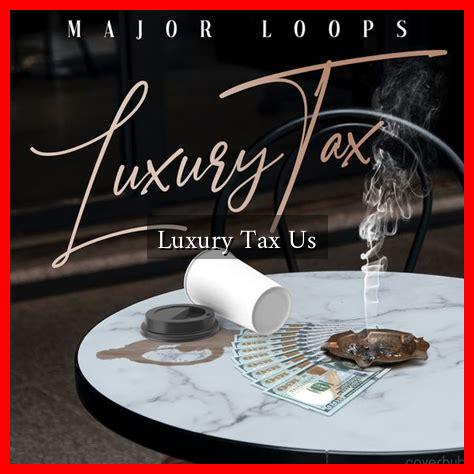-
Table of Contents
Understanding Luxury Tax in the U.S.: An In-Depth Analysis
Luxury tax, a term that evokes images of high-end goods and affluent consumers, is a tax levied on products that are considered non-essential or extravagant. In the United States, the concept of luxury tax has been a topic of debate among policymakers, economists, and consumers alike. This article delves into the intricacies of luxury tax in the U.S., exploring its history, implementation, and implications for both consumers and the economy.
The Historical Context of Luxury Tax in the U.S.
The luxury tax has a storied history in the United States, with its roots tracing back to the early 20th century. The first significant luxury tax was introduced in 1913 as part of the Revenue Act, targeting high-end goods such as jewelry, furs, and expensive automobiles. However, the most notable instance of luxury tax occurred in the early 1990s.
- 1990 Luxury Tax: The Omnibus Budget Reconciliation Act of 1990 imposed a 10% luxury tax on items priced over $100,000, including yachts, private jets, and expensive cars.
. This tax aimed to generate revenue for the federal government but faced backlash from the luxury goods industry.
- Impact on Sales: The luxury tax led to a significant decline in sales for affected industries. For instance, the yacht industry reported a 30% drop in sales, prompting the government to repeal the tax in 1993.
Current Luxury Tax Regulations
As of now, there is no federal luxury tax in the United States. However, some states and localities have implemented their own versions of luxury taxes. These taxes vary widely in terms of rates and the goods they cover.
- State-Level Luxury Taxes: States like New York and California have considered or implemented luxury taxes on high-end goods, including real estate and luxury vehicles.
- Examples of State Taxes:
- New York City imposes a mansion tax on residential properties sold for over $1 million.
- California has proposed taxes on luxury vehicles and yachts, targeting high-income earners.
The Economic Implications of Luxury Tax
The economic implications of luxury taxes are multifaceted. Proponents argue that these taxes can help reduce income inequality and generate revenue for public services. However, critics contend that luxury taxes can stifle economic growth and lead to job losses in affected industries.
- Revenue Generation: Luxury taxes can provide significant revenue for state and local governments, which can be used for public services such as education and infrastructure.
- Impact on Employment: Industries reliant on luxury goods may experience job losses due to decreased demand. For example, the yacht manufacturing sector faced significant layoffs during the 1990 luxury tax period.
Case Studies: Successes and Failures
Examining case studies of luxury tax implementation can provide valuable insights into its effectiveness and challenges.
- Success Story – France: France has successfully implemented a luxury tax on high-value properties, generating substantial revenue while maintaining a robust luxury market.
- Failure – U.S. Luxury Tax of the 1990s: The U.S. luxury tax of the early 1990s serves as a cautionary tale, illustrating how poorly designed luxury taxes can lead to unintended consequences, such as job losses and decreased sales.
Conclusion: The Future of Luxury Tax in the U.S.
As discussions around wealth inequality and taxation continue to evolve, the concept of luxury tax remains relevant. While there is currently no federal luxury tax in the U.S., state-level initiatives may gain traction as governments seek new revenue sources. The lessons learned from past implementations highlight the importance of careful design and consideration of economic impacts.
In summary, luxury tax in the U.S. is a complex issue that intertwines economic theory, consumer behavior, and government policy. Understanding its historical context, current regulations, and economic implications is crucial for stakeholders at all levels. As the landscape of taxation continues to change, the future of luxury tax will undoubtedly be a topic of ongoing debate and analysis.
For more information on luxury taxes and their implications, you can visit Tax Policy Center.





